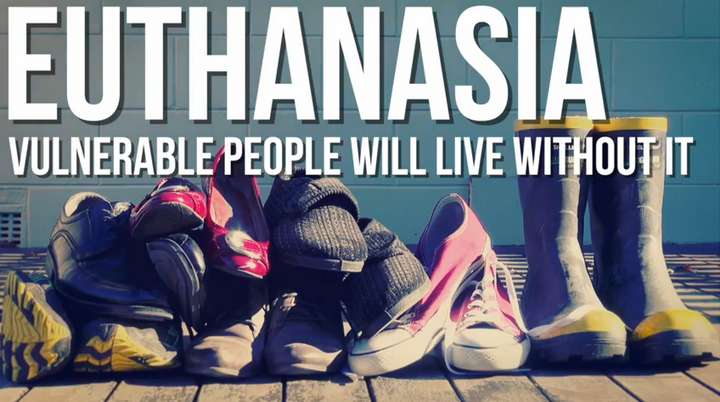Assisted suicide is not a progressive issue
 Pundit 21 January 2016
Pundit 21 January 2016
The statistics from Oregon are clear: the people who have the “choice” of assisted dying are disproportionately white, wealthy and well-educated. Who pays the price for their choice?
So who wants assisted suicide?
In Oregon, the poster child for New Zealand advocates of euthanasia and assisted suicide, the statistics after 17 years of the Death With Dignity Act are emphatic:
White 97.1%
Bachelor degree or higher 45.9%
Private medical insurance 60.2%
Concerned about being “less able to
engage in activities making life enjoyable” 88.7%
That is, the people who are doing the choosing are disproportionately white, wealthy, and well-educated. Having had a good life they want control of how they would face a terminal illness.
Fair enough, you might think, but who pays the price for their ‘choice’?
People like 64-year-old Barbara Wagner, who received a letter from the Oregon state health insurer helpfully advising her that they wouldn’t pay for the chemotherapy drugs she needed, but they would pay $50 for her assisted suicide.
And let’s not forget that the general suicide rate in Oregon has been increasing since 2000, and at last count was 41% above the United States average. That’s a fair warning that when you assist suicide for one group, you are endorsing it as an appropriate response to suffering for everybody.
It is also disabled people who pay the price. Not Dead Yet, an American disability rights group says: “In a society that prizes physical ability and stigmatizes impairments, it’s no surprise that previously able-bodied people may tend to equate disability with loss of dignity. This reflects the prevalent but insulting societal judgment that people who deal with incontinence and other losses in bodily function are lacking dignity.”
David Seymour’s private members bill would allow terminally ill people and those with a “grievous and irremediable medical condition” to ask a health professional to supply and/or administer a lethal dose of drugs.
What’s “grievous” and what’s “irremediable”?
Multiple sclerosis? Paraplegia? Autism? Impaired sight or hearing? Depression?
Such words matter supremely in this issue because it is, literally, a matter of life and death.
Assisted suicide advocates like to talk of ‘assisted dying’, ‘physician-assisted dying’ and ‘rational suicide’.
George Orwell warned us why they do this:
political language has to consist largely of euphemism, question-begging and sheer cloudy vagueness. Such phraseology is needed if one wants to name things without calling up mental pictures of them.
Exactly. The advocates do not want the public to have accurate mental pictures of the reality. That is why Mr Seymour’s bill would ensure that the actual cause of death is not recorded on the death certificate.
Last year the Scottish and UK parliaments rejected assisted suicide bills by large margins. The Scottish select committee report, in particular, is a must-read overview of all the competing issues at stake. (For the record, the committee had 5 SNP, 3 Labour and 1 Conservative members.)
The Guardian columnist Giles Fraser recently wrote “let us not pretend that this ‘personal choice’ is unaffected by wider economic realities.”
“by eroding the long-term mutual obligations we have to each other, in sickness and in health, we have arrived at the existential equivalent of a zero-hours contract with life, a contract that can be terminated at will.”
Euthanasia and assisted suicide – or whatever your euphemism of choice – is not a progressive issue.
by Matthew Jansen – Care Alliance
http://pundit.co.nz/content/assisted-suicide-is-not-a-progressive-issue








